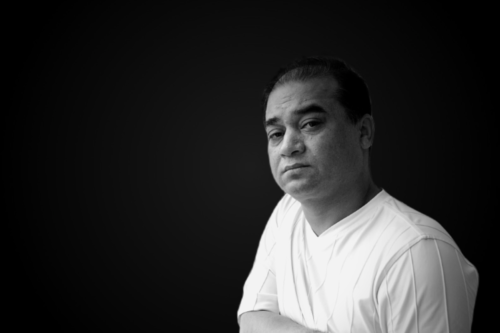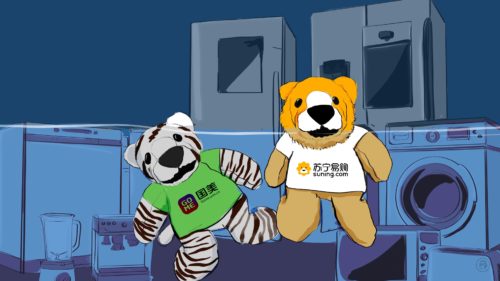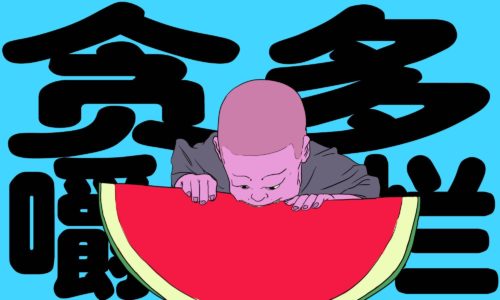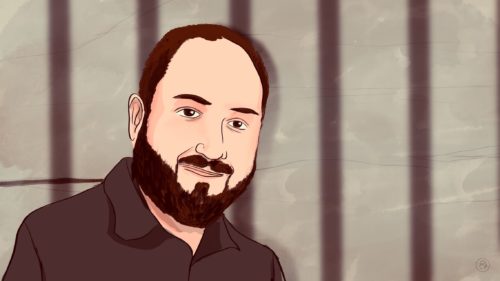A Chinese billionaire behind bars. And his wife, who kept the empire together.
Former trash collector Huang Guangyu became China’s richest man by building an electronic appliance empire. Then he was jailed for 10 years for “illegal business dealings.” He emerged from jail in June with his fortune intact, thanks to his wife, Du Juan, who took the helm and fought off anyone who tried to dilute her husband’s ownership of the company.
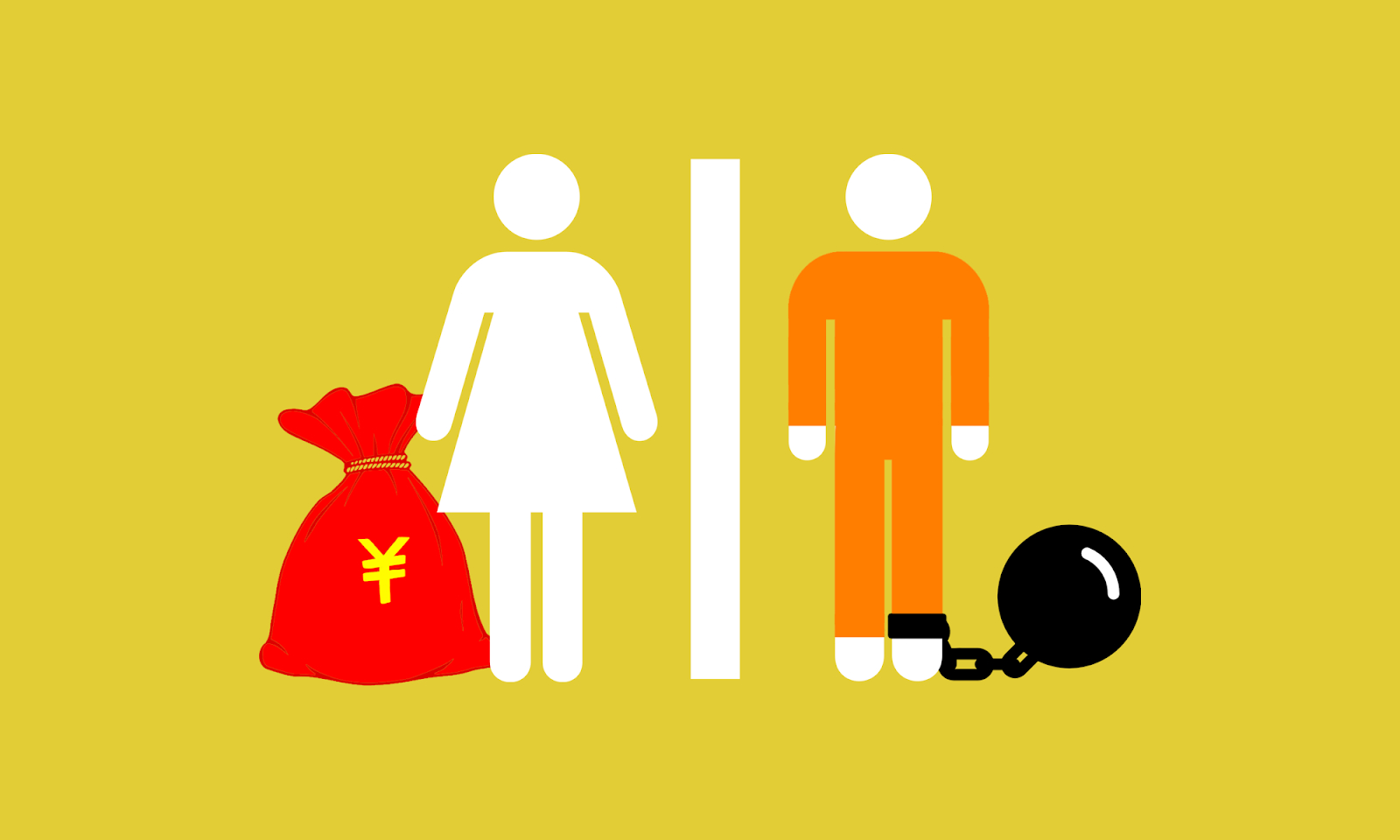
Ten years after he was imprisoned for “illegal business dealings,” and 12 years after he was named China’s richest man, Boss Huang was released on parole. Huáng Guāngyù 黄光裕 (sometimes called Wong Kwong-yu), the founder of GOME Electrical Appliances, spent time at three different Beijing prisons, but it’s not clear where he was immediately before his release on June 25, 2020. His 14-year sentence had been commuted, essentially for good behavior and sincere remorse for his crimes.
Huang emerged from jail with a net worth of $2.6 billion, ownership (or control through family members) of about 30% of the company he founded, and a secret-passage-filled Manhattan mansion purchased by his wife, Dù Juān 杜鹃, while he was behind bars.
Before his prison sentence, Huang was already a household name in China. The self-made billionaire’s portrait, often captioned with his mantra — “Businesspeople are boundless” 商人无界 — regularly adorned the covers of business magazines in the heady first decade of the 21st century. Huang seemed unstoppable as he transformed himself from uneducated street trader to one of the world’s richest men through a series of intrepid business tactics and occasionally shady practices. His competitors spoke of him with both reverence and fear, telling tales of times they engaged in air-conditioner “price-diving wars.” Huang himself was once quoted as saying he aspired to become a “Chinese wolf” (links in Chinese).
But it was largely thanks to the gritty tenacity of Huang’s wife, Du Juan, that he was able to get out of jail with much of his fortune intact. Du became a business mogul in her own right when she took over GOME after her husband’s arrest and led the company through a retail transformation. But how did Huang first make his fortune?
From trash collector to business tycoon
Huang was born in 1969 to an impoverished household in Shantou, Guangdong Province. He grew up sharing a 150-square-foot cabin with his parents and three siblings, with whom he collected trash to subsidize their family’s income.
At 16, Huang dropped out of high school to follow his older brother Huáng Jùnqīn 黄俊钦 to Inner Mongolia, where Junqin made a living refurbishing old electronic appliances. After Junqin served a brief stint in jail for selling counterfeit products, the brothers took their 4,000 yuan ($570) of savings and moved to Beijing.
The pair arrived in the capital and began selling smuggled clothing out of street stalls. However, after a few months of losses and continuous harassment from storefront owners, the Huangs switched tactics. They offered commissions to employees of a state-owned garment store if they agreed to secretly sell their clothing on the side. In less than a year, the Huangs’ illicit scheme paid off — they had enough money to open their own store and GOME Electrical Appliances was born. The Chinese name was a bland but politically wise choice: 国美 guó měi, which means “the country (China) is beautiful.”
After a 1989 government crackdown on smuggling and tax evasion caused Guangyu to flee Beijing and landed Junqin in jail for the second time, the two decided it was time to find a legal stream of income. In a market-altering move, the brothers started purchasing products straight from the manufacturers — allowing them to sell goods at prices far below those of competitors who were buying from middlemen or taking goods on consignment. Their low prices and large selections in each store appealed to millions of Chinese just entering the middle-class world of home appliances. GOME was on its way to retail greatness.
In 1992, Guangyu and Junqin had a falling out over differing business strategies. Junqin walked away with GOME’s one dozen stores. Guangyu kept their car, what was left of the company’s cash, and the rights to the GOME brand.
By 2004, GOME had 227 outlets around China. The same year, even though the company did not meet requirements to go public on any stock market, Huang secured a backdoor listing on the Hong Kong Stock Exchange, and the company’s valuation grew from 800 million yuan ($114 million) to 8 billion yuan ($1.14 billion) overnight. Huang’s personal assets soon skyrocketed to 10.5 billion yuan ($1.5 billion).

GOME was cashed up, and Chinese consumers loved their stores. At the 2005 opening of a new Nanjing location, more than 100,000 customers thronged into the store. That night, the cleaning staff found dozens of shoes, ripped off people’s feet during the mad rush to buy discounted refrigerators, vacuum cleaners, and televisions.
In 2006, Forbes and Time magazines both called Huang the richest man in China. He also topped the Hurun list of China’s wealthiest in 2004 and 2006.
In 2008, Huang topped Hurun’s list for one last time. In November that year, he and his wife were arrested for financial crimes. Du was released on bail, but Huang remained in detention and was forced to step down as chairman of GOME.
A record jail sentence for white-collar crime
In 2010, Huang was convicted on charges of bribery, insider trading, and “illegal business dealings.” His sentence and fines smashed records for white-collar crime convictions in China; he was fined 800 million yuan ($119 million) and given 14 years behind bars.
Because his trial occurred behind closed doors, no one is certain what the “illegal business dealings” were, but Huang did confess to “illegally converting about HK$800m ($103m), with some of the money going through a casino in Macau and an illegal bank”; paying 4.56 million yuan ($645,000) in bribes to five government officials between 2006 and 2008; and earning 309 million yuan ($44 million) through insider knowledge of restructuring at Beijing Centergate Technologies, a company where Huang served as a director.
At the time, Chinese internet users joked that Huang’s arrest would force him to realize that businesspeople are not actually boundless. But they reckoned without Du Juan.
From Mrs. Huang to Boss Du
After Huang’s 2008 arrest, his wife, Du Juan, made him a promise: “When you return, I will give you a better GOME.” She did not quite succeed: GOME’s value and profits have not recovered to their pre-prison highs. But it is thanks to Du that the company survived at all.
Du was born in 1972 in Beijing to a family of teachers. She graduated from Beijing University of Science and Technology and met Huang in 1993, while she was working as a loan specialist for Bank of China. After marrying Huang in 1996, she began working for GOME and was made an executive director in 2002. In 2010, Du was sentenced to three years in prison alongside her husband, but ultimately served no time behind bars.
Before Huang’s arrest, Du supported her husband behind the scenes in raising their family, and running the company as the manager of GOME’s investments, mergers, and acquisitions in Hong Kong. GOME employees referred to the couple as “Boss Huang” and “Mrs. Huang.” Today, she is “Boss Du.”

Mrs. Huang had long hair. Boss Du doesn’t have time for frivolous self-grooming. She sports a no-nonsense pixie cut.
After Huang’s arrest, Du sprang from her life in the shadows to defend her husband’s position at GOME. When Chén Xiǎo 陈晓, then president of GOME, succeeded Huang as chairman of the board, he swiftly attempted to dilute Huang’s shares in the company by selling stock to foreign investing giants. The ensuing battle was so ferocious that there was a book published about it in 2011. Its title? GOME Nirvana: Huang Guangyu and Chen Xiao’s Bloody Fight for Supremacy (国美涅槃:黄光裕、陈晓浴血争雄).
During the fight, Chen famously proclaimed (in Chinese), “Huang Guangyu’s political life in China is over, he just hasn’t realized it yet. The fish will die, the net won’t break,” meaning that in their power struggle, Huang, the measly fish, was the one going down. Huang tried to oust Chen by scribbling letters from prison, urging shareholders to replace Chen with Huang’s younger sister Huáng Xiùhóng 黄秀虹. He was outvoted.
Then Chen attempted to lock in his power by offering to sell 10% of the company to Bain Capital under the condition that he remain chairman for at least three years. Bain Capital, perhaps best known as the private equity firm co-founded by Mitt Romney, is very active in China and has had offices in Shanghai and Hong Kong since 2004.
With Huang in prison, it was Du who had to go to battle in person. She sought out Bain’s leadership and argued with the Americans until they withdrew financial support from Chen.
By 2011, Du had done it. On March 9, GOME announced that Chen had resigned as chairman. Du and her husband remained joint holders of about 30% of GOME’s shares, as they still are today.
Monthly prison visits
The couple continued to run their empire with Huang behind bars. When they ousted Chen, Zhāng Dàzhōng 张大中, one of Huang’s allies, stepped up as chairman. At the same time, the Huangs formally established GOME Holdings Group (国美控股集团), with Du Juan as CEO and chair of its “decision committee” (决策委员会). GOME Holdings Group invested enough in GOME Electrical Appliances to become its primary owner.
During Du’s monthly prison visits, the pair discussed GOME Holdings’ most important upcoming decisions and tactics. Du would then execute their plans in the outside world with the same guile and gusto her husband did for decades before.
Under Du’s leadership, GOME Holdings aggressively invested in a wide variety of industries, including real estate and telecommunications. In 2014, the company invested 500 million yuan ($71 million) to found GOME Financial Holdings (国美金控), an investment and asset management firm. Du also saw GOME through the implementation of a variety of new strategies, most recently a push for smart homes in 2019.
As of 2016, GOME Holdings owned five listed companies: GOME Finance Tech 国美金融科技, GOME Electrical Appliances 国美电器, Sanlian Trading Co. 三联商社, Beijing Centergate Tech 中关村科技, and Lajin Entertainment 拉近网娱.
In 2017, Forbes Magazine said Du was China’s 14th most outstanding businesswoman. In 2018, it named her the 11th.
What next?
Huang’s imprisonment did not make the couple’s investment strategy any more conventional. In 2011, one of their companies made a bid for a British Royal Navy aircraft carrier, which they planned to dock off the coast of Hong Kong and use as an exhibition platform for luxury goods.
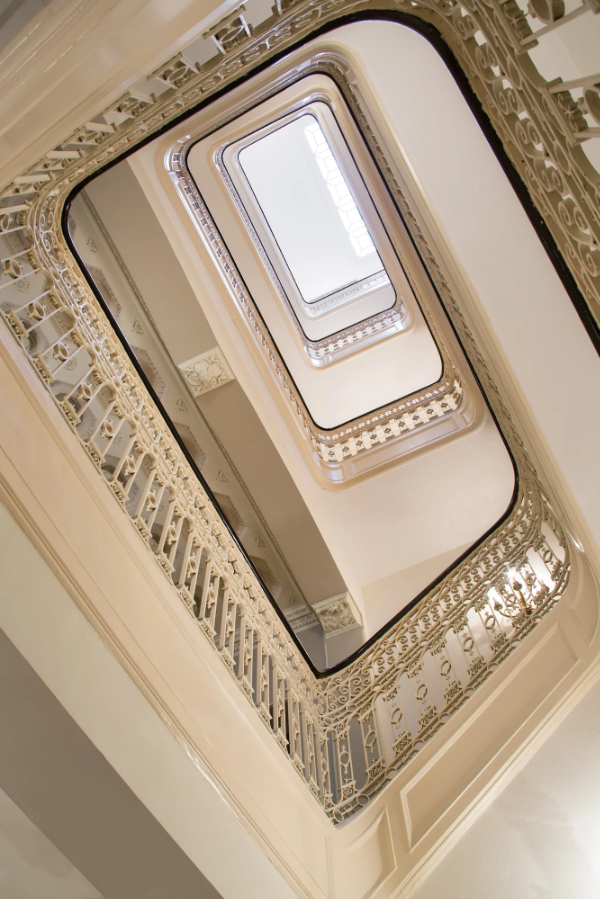
In 2017, the couple purchased a $42 million mansion in Manhattan’s Upper East Side, hiding their names under a limited liability company (LLC). The six-story home, known as the Clarence Whitman Mansion, is filled with secret passageways, with the floor of a coat closet opening to reveal stairs to the basement, and a hidden door in the library leading to a coatroom.
Huang built his empire on nothing but grit. His wife sustained it with the same. With both Boss Huang and Boss Du at the helm, there is no telling what GOME will do next — and investors can’t seem to make up their minds.
Since 2016, GOME’s sales have wilted in comparison with those of appliance companies that turned to ecommerce. Once the largest player in the appliance industry, today, GOME’s sales account for only 5.8% of the total home appliance market in China. However, ecommerce giants Pinduoduo and JD.com invested $300 million in GOME in May, indicating GOME might finally be trying to break into the online market.
The day of Huang’s release, hundreds flocked to buy holdings in all five of the GOME companies listed on the Hong Kong Stock Exchange. GOME Fintech’s price soared 47%. But during the three-day market closure for the Dragon Boat Festival (June 25–27 this year), investor interest declined, and all of the companies’ stocks have since experienced steady declines.
A week after his release, Huang already showed signs of trying to reinvigorate GOME by investing in appliances that fight the spread of COVID-19. On July 1, Kennede Electronics (金莱特) announced that it had signed a contract with GOME allowing GOME to sell its air-purification equipment.
The “Chinese wolf” has been released from its cage. Does he still have bite? Will he be even fiercer with his battle-hardened wife at his side? And will investors believe that this businessman is boundless?
